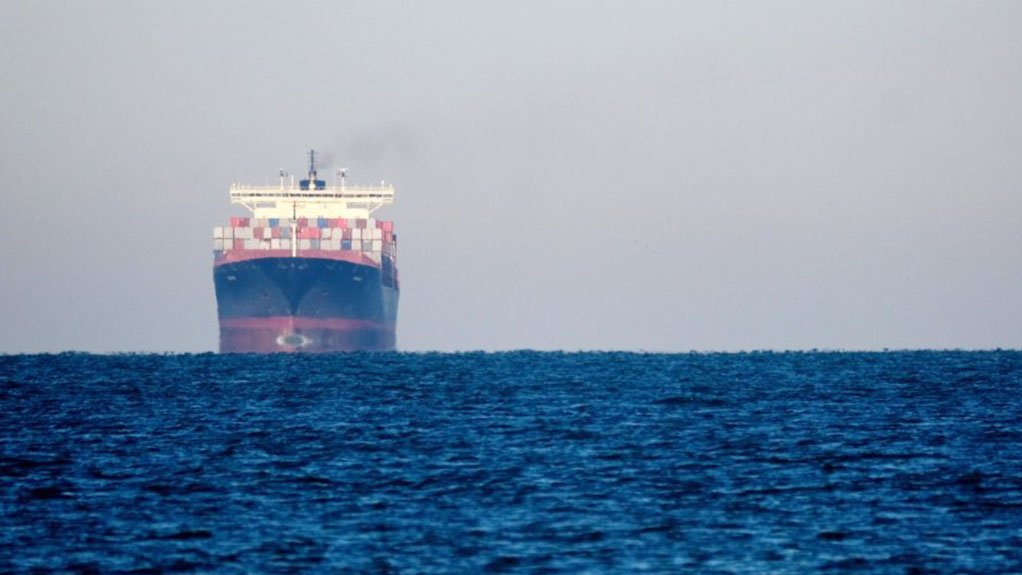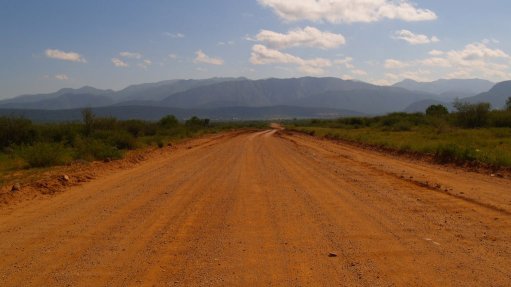Opinion: Towards green hydrogen – realising the maritime opportunity for South Africa
In this article, Council for Scientific and Industrial Research principal research engineer Thomas Roos and Saldanha Bay Industrial Development Zone CEO Kaashifah Beukes outline the opportunities for South Africa to become a key player in the production of green fuels for the maritime industry.
South Africa has an opportunity to establish itself as a key player in the global transition to renewable forms of energy. With strong access to solar and wind resources and large industrial activities, the development of green hydrogen – a clean alternative to fossil fuels based on renewable energy – could help drive forward South Africa’s decarbonisation ambitions and serve a range of wider national objectives.
South Africa is already pressing ahead on the path to developing green hydrogen, having earlier this year updated its Hydrogen Society Roadmap, which aims to bring about a carbon neutral society that is economically inclusive and environmentally stable.
For industries where electrification isn’t possible, such as steel production, shipping, aviation, chemicals and cement, the development of green hydrogen will be essential to ensuring these industries are sustainable and can continue to contribute to the South African economy for years to come.
MARITIME DECARBONISATION: FULL STEAM AHEAD
Following on from this week’s World Maritime Parallel Event, in Durban, it is becoming increasingly clear that international shipping represents an attractive, growing opportunity for South Africa to support these developments through providing strong future demand for green hydrogen. This could allow South Africa to secure several benefits, providing a means to ultimately export energy resources, drive national decarbonisation, create jobs, attract investment and improve public health.
Currently, international shipping uses about 300-million tons of fossil fuels every year, representing about 5% of global oil production. Over the coming decades, transitioning these energy sources to fuels based on green hydrogen, such as ammonia and methanol, will mean that the maritime industry will increasingly drive a high level of demand for these future sustainable fuels.
OPPORTUNITIES
South Africa is a country that is well placed to become a key player in the production of green fuels for the maritime industry. Situated along busy international shipping routes, South Africa has the highest maritime traffic in Africa outside the Mediterranean, an extensive internationally connected port system, strong access to renewable resources, and a developed industrial base that could help to aggregate demand for green hydrogen nationally across multiple sectors.
Assuming that 5% of the global fleet transitions to scalable zero-emission fuels (SZEF) by 2030, which will be necessary to put international shipping on track to comply with the goals of the Paris Agreement, the green energy demand for vessels in South Africa would represent about 3.8 TWh/y (equivalent to 114 000 t/y hydrogen, a third of Japan’s planned import volume of hydrogen in 2030).
Conservative calculations show that this accounts for only 0.2% of South Africa’s total renewable potential. This means that supplying international shipping will not compete with domestic energy needs, whilst also providing significant scope to increase this supply over time.
By contrast, supporting large-scale investment into renewable electricity capacity will further allow for excess renewable electricity to contribute to energy security, reduce load shedding and accelerate decarbonisation of the grid, in addition to driving down costs of new renewables installations through economies of scale and competition.
Being part of the transition for shipping would allow South Africa to engage in, for example, green fuel production, exports, and bunkering; support a just and equitable job transition and create green hubs and green ports. In addition, South Africa is extremely well placed to launch Africa’s first green corridor (a specific trade route between major port hubs where zero-emission solutions are demonstrated and supported) which could help scale up the infrastructure and business models necessary to unlock these future opportunities.
By entering this space, South Africa could leverage trends in international shipping to secure progress on several other national ambitions:
DECARBONISE NATIONAL INDUSTRY
Maritime decarbonisation could create opportunities for synergies with other sectors, aggregating demand for green hydrogen across sectors like mining and agriculture.
JOB CREATION
South Africa could leverage maritime decarbonisation to boost job creation, addressing the need to transition away from coal-based employment, develop skills locally and support a just transition.
PUBLIC HEALTH
Transitioning to clean forms of energy would significantly reduce the impacts of maritime emissions on local communities, particular in coastal areas.
INTERNATIONAL INVESTMENT
The development of SZEF infrastructure to serve South Africa’s shipping sector could attract investment of up to R175-billion in onshore infrastructure by 2030.
THE WAY FORWARD
South Africa’s ability to make progress on linking its existing hydrogen ambitions to ongoing trends in maritime decarbonisation has the potential to create a range of national opportunities. However, more work is needed to specifically address this at the national level and ensure that this becomes a reality. To accelerate this, South Africa should seek to take the following actions:
RECOMMENDATIONS:
*Collaboration to secure effective GHG policy at the International Maritime Organization (IMO). Unlocking investment could be enabled through effective policy at the IMO and working with other countries on the adoption of new policy, e.g. market-based measures, which could reduce the price gap between traditional and green fuels.
*Align maritime policies with national climate ambition. Aligning maritime policies, in both national and international settings, to the levels of national climate ambition can increase policy coherence and unlock investment.
*Develop Africa’s first green corridor by signing the Clydebank Declaration to signal its interest in international collaboration on the early adoption of green corridors; preparing to source or produce SZEF for bunkering, port use and export; preparing to source or produce green hydrogen and ammonia can help the country realise strategic opportunities domestically and create a possible export product for trade with other countries or regions; and becoming a government partner to the First Movers Coalition, and joining its Infrastructure pillar of work.
The following stakeholders endorse the above messages:
*Africa Climate Foundation – Saliem Fakir
*Anglo American – Peter Lye
*Cargill – Emma Skov Christensen
*Council of Scientific and Industrial Research – Nicholas Musyoka
*ENGIE – Jonathan Debasc
*Global Maritime Forum/Getting to Zero Coalition – Ingrid Sidenvall Jegou
*South African International Maritime Institute – Odwa Mtati
*World Economic Forum/Getting to Zero Coalition – Margi Van Gogh
Article Enquiry
Email Article
Save Article
Feedback
To advertise email advertising@creamermedia.co.za or click here
Press Office
Announcements
What's On
Subscribe to improve your user experience...
Option 1 (equivalent of R125 a month):
Receive a weekly copy of Creamer Media's Engineering News & Mining Weekly magazine
(print copy for those in South Africa and e-magazine for those outside of South Africa)
Receive daily email newsletters
Access to full search results
Access archive of magazine back copies
Access to Projects in Progress
Access to ONE Research Report of your choice in PDF format
Option 2 (equivalent of R375 a month):
All benefits from Option 1
PLUS
Access to Creamer Media's Research Channel Africa for ALL Research Reports, in PDF format, on various industrial and mining sectors
including Electricity; Water; Energy Transition; Hydrogen; Roads, Rail and Ports; Coal; Gold; Platinum; Battery Metals; etc.
Already a subscriber?
Forgotten your password?
Receive weekly copy of Creamer Media's Engineering News & Mining Weekly magazine (print copy for those in South Africa and e-magazine for those outside of South Africa)
➕
Recieve daily email newsletters
➕
Access to full search results
➕
Access archive of magazine back copies
➕
Access to Projects in Progress
➕
Access to ONE Research Report of your choice in PDF format
RESEARCH CHANNEL AFRICA
R4500 (equivalent of R375 a month)
SUBSCRIBEAll benefits from Option 1
➕
Access to Creamer Media's Research Channel Africa for ALL Research Reports on various industrial and mining sectors, in PDF format, including on:
Electricity
➕
Water
➕
Energy Transition
➕
Hydrogen
➕
Roads, Rail and Ports
➕
Coal
➕
Gold
➕
Platinum
➕
Battery Metals
➕
etc.
Receive all benefits from Option 1 or Option 2 delivered to numerous people at your company
➕
Multiple User names and Passwords for simultaneous log-ins
➕
Intranet integration access to all in your organisation





















